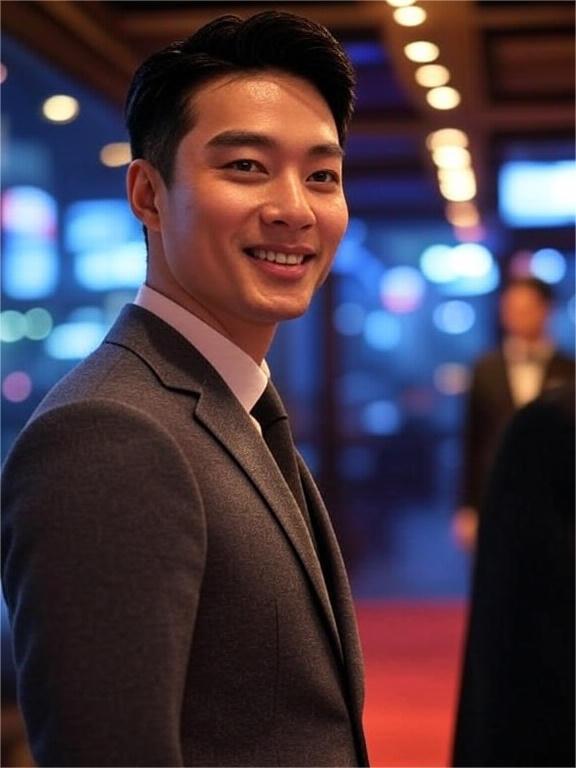Etiquette Lessons from Gangnam’s Premium Nightlife: Understanding Korean Hospitality Culture
 Korean hospitality shines brightest in Gangnam’s upscale nightlife. The vibrant district of Gangnam in Seoul is renowned for its luxurious venues, where elegance and tradition blend seamlessly with modern flair. These high-end establishments, known for their impeccable service and sophisticated ambiance, offer more than just a night out. They provide a window into Korea’s deep-rooted hospitality culture, where respect, attentiveness, and social harmony take center stage. By exploring the etiquette and norms of these venues, visitors can gain a richer understanding of Korean society and its values.
Korean hospitality shines brightest in Gangnam’s upscale nightlife. The vibrant district of Gangnam in Seoul is renowned for its luxurious venues, where elegance and tradition blend seamlessly with modern flair. These high-end establishments, known for their impeccable service and sophisticated ambiance, offer more than just a night out. They provide a window into Korea’s deep-rooted hospitality culture, where respect, attentiveness, and social harmony take center stage. By exploring the etiquette and norms of these venues, visitors can gain a richer understanding of Korean society and its values.
Upscale venues like those reviewed in Jjim-o Reviews (쩜오 후기 모음) set a high standard for hospitality. These exclusive spots, often referred to as “tenpro” or 쩜오, are synonymous with premium service, attracting a clientele that values refinement. Guests are greeted with warmth and precision, from the moment they step through the door. Staff are trained to anticipate needs, ensuring every detail—from seating arrangements to drink preferences—is handled with care. This level of attentiveness reflects Korea’s cultural emphasis on jeong, a concept of deep emotional connection and care for others. Visitors are not just customers; they are honored guests.
The Art of Respect in Korean Nightlife
Respect is the cornerstone of interactions in Gangnam’s nightlife. In Korean culture, respect governs social exchanges, and this is amplified in upscale venues. Guests are expected to dress appropriately, often in smart or formal attire, to match the venue’s ambiance. Speaking politely and acknowledging staff with a nod or a smile goes a long way. For example, addressing staff with honorifics like “-nim” (a respectful suffix) shows appreciation for their role. This mutual respect creates a harmonious environment, where everyone feels valued.
- Dress Code: Opt for elegant attire, such as suits or dresses, to align with the venue’s sophisticated vibe.
- Greetings: A slight bow or polite nod when entering or leaving shows respect for the staff and the establishment.
- Language: Using basic Korean phrases like “annyeonghaseyo” (hello) or “gamsahamnida” (thank you) enhances the experience.
Navigating Social Norms with Grace
Social harmony drives the atmosphere in these venues. Korean nightlife etiquette emphasizes group dynamics over individualism. Guests often visit in groups, and sharing drinks or food is a common way to bond. For instance, pouring drinks for others before yourself is a sign of respect and camaraderie. “In Korea, pouring a drink for someone is an act of care,” says Min-ji Kim, a Seoul-based cultural consultant. “It shows you’re thinking of them first.” Understanding these norms helps visitors blend in and fosters a sense of belonging.
Timing matters in these high-energy settings. Arriving on time for reservations is crucial, as it shows respect for the venue’s schedule and other guests. Tipping, while not customary in Korea, may be subtly appreciated in upscale venues if done discreetly. However, the real currency here is gratitude—expressed through polite gestures or verbal thanks. These small acts reinforce the reciprocal nature of Korean hospitality, where both guest and host contribute to a positive experience.
Lessons for Cross-Cultural Awareness
Understanding these practices opens doors to cultural appreciation. The etiquette observed in Gangnam’s nightlife mirrors broader Korean values, such as collectivism and respect for hierarchy. For foreigners, learning these norms can transform a night out into a meaningful cultural exchange. Educational programs about Korean society can draw on these insights to teach students about han (emotional depth) and nunchi (the art of reading social cues). By studying how staff and guests interact in venues like tenpro, learners can grasp the subtleties of Korean social dynamics.
- Collectivism: Group harmony takes precedence, encouraging shared experiences over individual desires.
- Nunchi: Being aware of others’ needs and adjusting your behavior accordingly is a valued skill.
- Hierarchy: Respecting elders or those in higher social positions is a key aspect of interactions.
READ ALSO: Online Portals Supporting Learning and Community Initiatives in Korea
Applying Etiquette Beyond the Nightlife
Korean hospitality extends far beyond Gangnam’s glittering lights. The principles of respect, attentiveness, and harmony seen in upscale venues can be applied in everyday interactions. Whether dining at a local restaurant or attending a business meeting, these values create meaningful connections. Educational programs can use these lessons to teach students how to navigate Korean social settings with confidence. For example, role-playing scenarios based on nightlife etiquette can help learners practice nunchi and polite communication.
Gangnam’s premium nightlife offers a masterclass in Korean hospitality. From the meticulous service to the unspoken rules of respect, venues like those featured in Jjim-o Reviews showcase a culture that values connection and care. By embracing these etiquette lessons, visitors not only enhance their nightlife experience but also gain a deeper appreciation for Korean society. These insights can inspire cross-cultural understanding, fostering respect and curiosity for traditions that make Korea unique. So, next time you step into a Gangnam venue, remember: a little etiquette goes a long way.